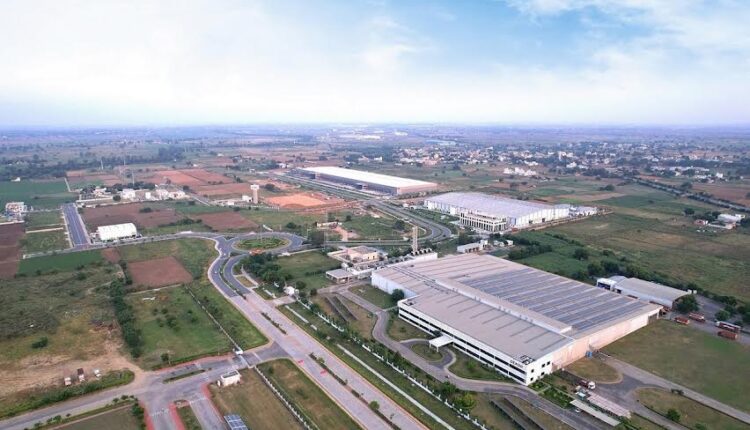Production Linked Incentive (PLI) Scheme: Here is how it works
PLI schemes intend to make India a manufacturing hub, and open avenues for the corporate sector to set up their production units in India.
Written by Jayshree Navin Chandra, Senior Partner & Nitika Bakshi, Associate, ZEUS Law Associate
Having rolled out PLI scheme benefits for 14 products categories, the Indian government is now considering to extend it to new sectors like leather, bicycle, vaccine materials, telecom products, chemicals, shipping containers, toys, etc. as well.
What is the Production Linked Investment Scheme (“PLI Scheme”): The PLI Scheme is an incentive based scheme introduced by the Government of India for enhancing India’s manufacturing capabilities under its Atmanirbhar Bharat (Self Reliant India) initiative. The mission is boost manufacturing sector, create jobs while providing companies with an incentive on incremental sales on products manufactured in domestic units. It aims at making Indian manufacturers globally competitive, attract investments in the areas of core competency; cutting edge technology; ensure efficiencies, create economies of scale; enhance exports and make India an integral part of the global supply chain.
The Scheme is designed to boost efficient, equitable and resilient manufacturing sector in the country and creating a conducive manufacturing ecosystem. Additionally, the Government is also working on improving the ease of doing business, reducing onerous compliances, creating and upgrading multi-modal infrastructure, reducing costs associated with logistics to better realise the potential of the Indian economy.
How Does the PLI Scheme Work?
To meet their commitments under the scheme the eligible companies would be required to develop large scale manufacturing units as well as bring improvements to logistics and infrastructure. Currently PLI Scheme offers to manufacturing companies, who have approval to avail the incentive, to receive incentives ranging from 3% to 20% for a period ranging from 4-6 year, based on sector specific schemes.
Related article: Japanese Cos. must conduct multifaceted due diligence before going for Joint Venture in India
It is also important to note that the government has prescribed different eligibility threshold criteria for different sectors based on whether it is a large scale or normal scale investment. Certain schemes are designed in such a way so as to differentiate the criteria of eligibility for larger domestic and foreign companies and small and medium enterprises (MSMEs). For instance the required minimum investment commitment for larger players is higher as compared to the required minimum investment commitment for small and medium enterprises. This is to ensure that the benefits of the incentives are not concentrated only to a few dominant key players in the sector but also to give impetus to manufacturing at the level of MSMEs as well.
Applicable incentive for a given financial year is disbursed on achievement of the threshold net incremental sales for that year of goods manufactured over the base year threshold and achieving the prescribed threshold of cumulative incremental increase in investment in the preceding year. The government has allocated financial limits of incentive offered for each sector and the ministries/departments be implementing the same.
Sectors Covered Under the PLI Scheme
Initially the following 3 PLI Schemes were approved and launched in March 2020:
| S. No. | Sector | Implementation Ministry/ Department |
| 1. | Mobile Manufacturing and Specified Electronic Components | MEITY |
| 2. | Critical Key Starting Materials/ Drug Intermediaries and Active Pharmaceutical Ingredients | Department of Pharmaceuticals |
| 3. | Manufacturing of Medical Devices | Department of Pharmaceuticals |
This was followed by the approval and launch of 10 more PLI Schemes (in addition to the 3 schemes already approved and launched) in November 2020:
| S. No. | Sector | Implementation Ministry/ Department |
| 1. | Advance Chemistry Cell (ACC) Battery | NITI Ayog and Department of Heavy Industries |
| 2. | Electronic/ Technology Products | Ministry of Electronics and Information Technology |
| 3. | Automobiles
& Auto Components |
Department of Heavy Industries |
| 4. | Pharmaceuticals drugs | Department of Pharmaceuticals |
| 5. | Telecom & Networking Products | Department of Telecom |
| 6. | Textile Products: MMF segment and technical textiles | Ministry of Textiles |
| 7. | Food Products | Ministry of Food Processing Industries |
| 8. | High Efficiency Solar PV Modules | Ministry of New and Renewable Energy |
| 9. | White Goods (ACs & LED) | Department for Promotion of Industry and Internal Trade |
| 10. | Speciality Steel | Ministry of Steel |
In September 2021 the PLI Scheme for the following sector was added:
| S. No. | Sector | Implementation Ministry/ Department |
| Drones and Drone Components | Ministry of Civil Aviation |
The government is now considering to extend PLI scheme to sector like leather, bicycle, vaccine materials, telecom products, chemicals, shipping containers, toys etc as well.
Benefits and Impact of the PLI Schemes
The PLI Schemes are set to make India a hub for manufacturing. The focus on manufacturing is intended to cause a reduction in reliance on imports in the short terms and enhance exports over the long term. Moreover, since developing large scale manufacturing units are labour intensive and coupled with the PLI Schemes’ focus on key employment generating sectors, it is expected that the PLI Scheme would lead to an exponential rise in employment for India’s vast and abled workforce.
About the Authors:
 Jayshree Navin Chandra, Senior Partner at ZEUS Law, has been a practicing lawyer since 2001 with extensive corporate and transactional advisory experience. She manages and oversees the Corporate, M&A, Commercial and Real Estate & Infrastructure practice at the firm and advises and represents clients ranging from Fortune 500 companies to start-ups as well as Central and State Government departments and public bodies in a wide range of domestic and cross border transactions, across industries. Nitika Bakshi, is an Associate at ZEUS Law and works in the Corporate and Commercial practice vertical.
Jayshree Navin Chandra, Senior Partner at ZEUS Law, has been a practicing lawyer since 2001 with extensive corporate and transactional advisory experience. She manages and oversees the Corporate, M&A, Commercial and Real Estate & Infrastructure practice at the firm and advises and represents clients ranging from Fortune 500 companies to start-ups as well as Central and State Government departments and public bodies in a wide range of domestic and cross border transactions, across industries. Nitika Bakshi, is an Associate at ZEUS Law and works in the Corporate and Commercial practice vertical.
About ZEUS Law Associates:
 ZEUS Law Associates is an ISO certified full service corporate commercial law firm with a team of dedicated and experienced lawyers well versed in handling domestic and cross border transactions across sectors, jurisdictions and regulatory landscapes. The firm’s distinct practice areas include Corporate & Commercial Law, Real Estate & Infrastructure, Litigation, Alternate Dispute Resolution, Indirect Tax and NRI Services. The Firm has also extended advisory and successfully supported clients in their application for incentives under the PLI Scheme.
ZEUS Law Associates is an ISO certified full service corporate commercial law firm with a team of dedicated and experienced lawyers well versed in handling domestic and cross border transactions across sectors, jurisdictions and regulatory landscapes. The firm’s distinct practice areas include Corporate & Commercial Law, Real Estate & Infrastructure, Litigation, Alternate Dispute Resolution, Indirect Tax and NRI Services. The Firm has also extended advisory and successfully supported clients in their application for incentives under the PLI Scheme.



